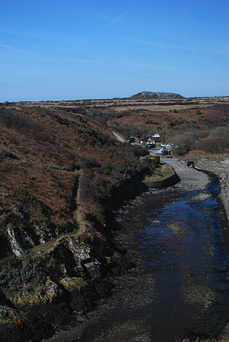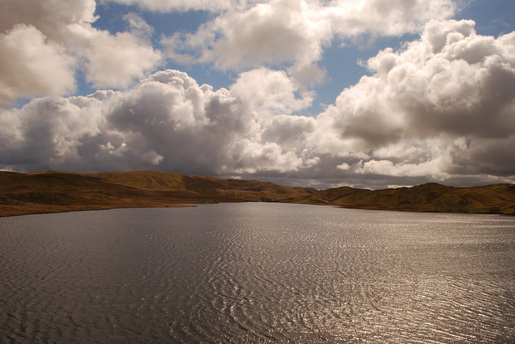
Regional Development
Tourism is not a panacea for every economic ill. But tourism can, and does, make a valuable contribution to urban and rural regeneration. ‘Regional Development’ defines those significant aspects of our work that go beyond the development or marketing of individual operations.
At simplest, this might involve examination of the existing and developmental relationships between various components of the destination product mix, with recommendations on development and joint marketing. At is most complex a regional development project will review the position and potential of tourism within the wider local economy — the way that mainstream tourism interacts with, depends upon and creates opportunities for retail, catering, local products and produce, leisure and cultural provision and manufacturing.
The most wide reaching regional development commissions also address infrastructural issues — urban design or countryside access, traffic management, environmental enhancement, the improvement of public amenities.
Larger regional development projects normally require multi-disciplinary teams. BFA has a history of working successfully with practices in other specialist fields: urban and countryside planning and design, civil/marine engineering, ecology, archaeology and others. The following examples provide a flavour of our experience.
Tourism is not a panacea for every economic ill. But tourism can, and does, make a valuable contribution to urban and rural regeneration. ‘Regional Development’ defines those significant aspects of our work that go beyond the development or marketing of individual operations.
At simplest, this might involve examination of the existing and developmental relationships between various components of the destination product mix, with recommendations on development and joint marketing. At is most complex a regional development project will review the position and potential of tourism within the wider local economy — the way that mainstream tourism interacts with, depends upon and creates opportunities for retail, catering, local products and produce, leisure and cultural provision and manufacturing.
The most wide reaching regional development commissions also address infrastructural issues — urban design or countryside access, traffic management, environmental enhancement, the improvement of public amenities.
Larger regional development projects normally require multi-disciplinary teams. BFA has a history of working successfully with practices in other specialist fields: urban and countryside planning and design, civil/marine engineering, ecology, archaeology and others. The following examples provide a flavour of our experience.
Tywyn and Aberdyfi: An Environmental and Community Approach to Tourism Development, 1987
Regional audit, trade and community consultations, identification of opportunities and production of a tourism development plan and local transport recommendations for the coastal towns of Tywyn and Aberdyfi and their hinterland. For the Wales Tourist Board. Used in support of a successful funding bid under the 1988 WTB LEAD Initiative.
Urban Destination Marketing: A Comparative Review, 1988
Selective UK-wide review of urban marketing departments — staffing, funding and mechanisms — to establish a minimum resource threshold for the Capital City of Wales. For Cardiff Marketing Bureau. Resulting in the creation of Cardiff Marketing Ltd., a quasi-autonomous company limited by guarantee.
Strategic Review of West Country Day Visitor Attractions, 1988
Milestone study of the West Country attractions industry, from Wiltshire to the Isles of Scilly. Audit, trade consultations and identification of weakness and opportunities. For the English Tourist Board and West Country Tourist Board. Used to inform WCTB development and investment strategy.
Rural Prosperity Programme Fishguard, 1991
Review of proposed attraction development and recommended alternatives in light of the town’s position as an international ferry port. For the Welsh Development Agency.
Tourism 2000: Tourism and the Community, 1992
Contributing author to the Wales Tourist Board 5 Year Development Strategy. Selective consultations and recommendations on good practice for community-led tourism initiatives.
Rural Prosperity Programme Porthmadog, 1992
Audit of infrastructure, sub-regional tourism product and leisure provision, leading to development strategy. For the Welsh Development Agency.
Talgarth Economic Action Programme, 1994
Identification of a range of economic development and urban design options for Talgarth, in response to the demise of a major local employer and proposals for a new by-pass. For The Development Board for Rural Wales. Forerunner of the Mid Wales Market Town Initiative.
Pembroke Dock Waterfront Development, 1995
Retail and tourism development options and urban design recommendations for the gateway section of the Pembroke Dock waterfront. For South Pembrokeshire District Council.
Tourist Information Offices, Poland, 1997
Author, development and operational manual. For the Government of Poland.
Triple Jeopardy: Looked After Children and Adventure Activities, 1998
Independent review of the risks associated with private children’s homes offering adventure activities, and the potential impact on local tourism and local communities. In response to ‘People Like Us’, Sir William Utting’s report on safeguards for children living away from home. Now available as a downloadable PDF - click here.
Bristol & Bath: A Study of Coach Based Tourism, 1998/99
Research into the volume and value of coach based tourism to the two cities, together with a review of provision for coaches and recommendations on coach management. For the West Country Tourist Board, Bristol Tourism and Bath Tourism Bureau.
Porthcawl Regeneration Study, 2003/04
Supplementary Planning Guidance. Urban design for mixed retail, housing and tourism/leisure development for the Porthcawl Sandy Bay Regeneration Zone. For Bridgend County Borough Council.
Pembrokeshire: Community & Heritage Tourism, 2011-2015
Steering Group member, by invitation. Part of a pan-Wales initiative under the auspices of the Pembrokeshire Local Action Network for Enterprise and Development [PLANED].
Regional audit, trade and community consultations, identification of opportunities and production of a tourism development plan and local transport recommendations for the coastal towns of Tywyn and Aberdyfi and their hinterland. For the Wales Tourist Board. Used in support of a successful funding bid under the 1988 WTB LEAD Initiative.
Urban Destination Marketing: A Comparative Review, 1988
Selective UK-wide review of urban marketing departments — staffing, funding and mechanisms — to establish a minimum resource threshold for the Capital City of Wales. For Cardiff Marketing Bureau. Resulting in the creation of Cardiff Marketing Ltd., a quasi-autonomous company limited by guarantee.
Strategic Review of West Country Day Visitor Attractions, 1988
Milestone study of the West Country attractions industry, from Wiltshire to the Isles of Scilly. Audit, trade consultations and identification of weakness and opportunities. For the English Tourist Board and West Country Tourist Board. Used to inform WCTB development and investment strategy.
Rural Prosperity Programme Fishguard, 1991
Review of proposed attraction development and recommended alternatives in light of the town’s position as an international ferry port. For the Welsh Development Agency.
Tourism 2000: Tourism and the Community, 1992
Contributing author to the Wales Tourist Board 5 Year Development Strategy. Selective consultations and recommendations on good practice for community-led tourism initiatives.
Rural Prosperity Programme Porthmadog, 1992
Audit of infrastructure, sub-regional tourism product and leisure provision, leading to development strategy. For the Welsh Development Agency.
Talgarth Economic Action Programme, 1994
Identification of a range of economic development and urban design options for Talgarth, in response to the demise of a major local employer and proposals for a new by-pass. For The Development Board for Rural Wales. Forerunner of the Mid Wales Market Town Initiative.
Pembroke Dock Waterfront Development, 1995
Retail and tourism development options and urban design recommendations for the gateway section of the Pembroke Dock waterfront. For South Pembrokeshire District Council.
Tourist Information Offices, Poland, 1997
Author, development and operational manual. For the Government of Poland.
Triple Jeopardy: Looked After Children and Adventure Activities, 1998
Independent review of the risks associated with private children’s homes offering adventure activities, and the potential impact on local tourism and local communities. In response to ‘People Like Us’, Sir William Utting’s report on safeguards for children living away from home. Now available as a downloadable PDF - click here.
Bristol & Bath: A Study of Coach Based Tourism, 1998/99
Research into the volume and value of coach based tourism to the two cities, together with a review of provision for coaches and recommendations on coach management. For the West Country Tourist Board, Bristol Tourism and Bath Tourism Bureau.
Porthcawl Regeneration Study, 2003/04
Supplementary Planning Guidance. Urban design for mixed retail, housing and tourism/leisure development for the Porthcawl Sandy Bay Regeneration Zone. For Bridgend County Borough Council.
Pembrokeshire: Community & Heritage Tourism, 2011-2015
Steering Group member, by invitation. Part of a pan-Wales initiative under the auspices of the Pembrokeshire Local Action Network for Enterprise and Development [PLANED].
